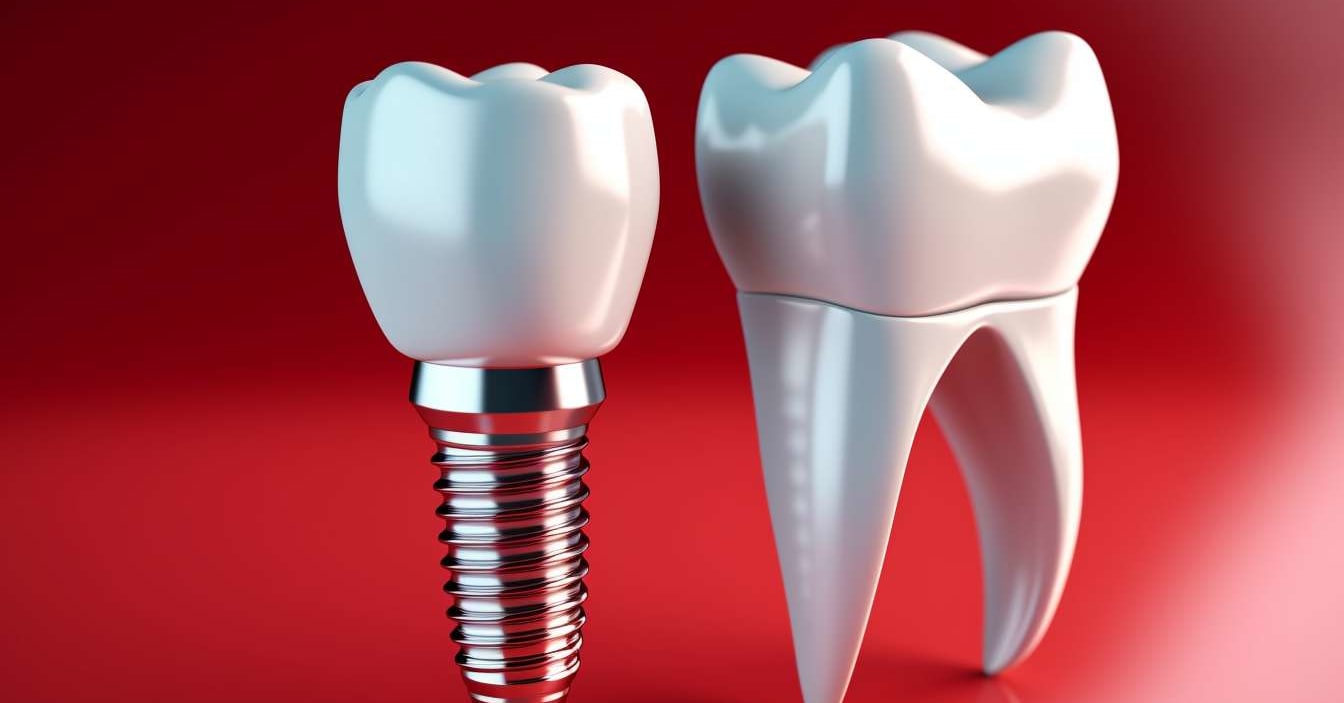Dental Implants: A Comprehensive Guide to Restoring Your Smile
Dental implants have revolutionized the field of restorative dentistry, offering a permanent and natural-looking solution for missing teeth. These innovative devices serve as artificial tooth roots, providing a strong foundation for replacement teeth that look, feel, and function like natural ones. Whether you're considering dental implants for yourself or a loved one, understanding the process, benefits, and costs involved is crucial for making an informed decision about your oral health.

What are dental implants and how do they work?
Dental implants are small titanium posts that are surgically placed into the jawbone beneath the gum line. These posts act as artificial tooth roots, providing a stable base for custom-made replacement teeth. The implant fuses with the jawbone through a process called osseointegration, creating a strong and durable foundation. Once the implant has fully integrated with the bone, which typically takes several months, an abutment is attached to the implant. This abutment serves as a connector between the implant and the final restoration, which can be a crown, bridge, or denture.
What are the benefits of choosing dental implants?
Dental implants offer numerous advantages over traditional tooth replacement options like dentures or bridges. One of the primary benefits is their ability to preserve jawbone density. When a tooth is lost, the underlying bone begins to deteriorate due to lack of stimulation. Implants mimic natural tooth roots, providing the necessary stimulation to maintain bone health. Additionally, dental implants look and function like natural teeth, allowing you to eat, speak, and smile with confidence. Unlike removable dentures, implants are permanently fixed in place, eliminating concerns about slippage or the need for messy adhesives.
Who is a good candidate for dental implants?
While dental implants are suitable for many individuals, not everyone is an ideal candidate. Generally, good candidates for dental implants should have:
-
Healthy gums free from periodontal disease
-
Sufficient bone density to support the implant
-
Good overall health and a strong immune system
-
A commitment to maintaining good oral hygiene
Factors that may affect candidacy include smoking, certain medical conditions like diabetes or heart disease, and a history of radiation therapy to the jaw area. A thorough evaluation by a dental professional is necessary to determine if dental implants are the right choice for you.
What is the dental implant procedure like?
The dental implant process typically involves several stages spread out over a few months:
-
Initial consultation and treatment planning
-
Implant placement surgery
-
Healing and osseointegration period (3-6 months)
-
Abutment placement
-
Final restoration attachment
During the implant placement surgery, the titanium post is inserted into the jawbone under local anesthesia. Most patients report minimal discomfort during and after the procedure. The healing period allows the implant to fuse with the bone, ensuring a stable foundation for the replacement tooth.
How long do dental implants last?
With proper care and maintenance, dental implants can last a lifetime. The implant itself, which is the titanium post embedded in the jawbone, has a success rate of up to 98% and can potentially last for decades. However, the crown or other restoration attached to the implant may need replacement after 10-15 years due to normal wear and tear. Regular dental check-ups and good oral hygiene practices are essential for maintaining the longevity of your dental implants.
What is the cost of dental implants?
The cost of dental implants can vary significantly depending on factors such as the number of implants needed, the complexity of the case, and geographic location. Generally, a single dental implant can range from $3,000 to $6,000, including the implant, abutment, and crown.
| Procedure | Average Cost Range |
|---|---|
| Single Implant | $3,000 - $6,000 |
| Multiple Implants | $6,000 - $30,000 |
| Full Mouth Reconstruction | $30,000 - $90,000 |
Prices, rates, or cost estimates mentioned in this article are based on the latest available information but may change over time. Independent research is advised before making financial decisions.
It’s important to note that while dental implants may seem expensive initially, they often prove to be a cost-effective solution in the long run. Unlike bridges or dentures that may need frequent replacements, implants can last a lifetime with proper care. Many dental practices offer financing options to help make the treatment more affordable. Additionally, some dental insurance plans may cover a portion of the implant cost, especially if the tooth loss is due to an accident or medical condition.
Dental implants represent a significant advancement in tooth replacement technology, offering a durable, natural-looking solution for those dealing with tooth loss. While the process requires time and financial investment, the long-term benefits in terms of oral health, functionality, and aesthetics make them an attractive option for many patients. If you’re considering dental implants, consult with a qualified dental professional to determine if they’re the right choice for your specific needs and circumstances.
This article is for informational purposes only and should not be considered medical advice. Please consult a qualified healthcare professional for personalized guidance and treatment.




